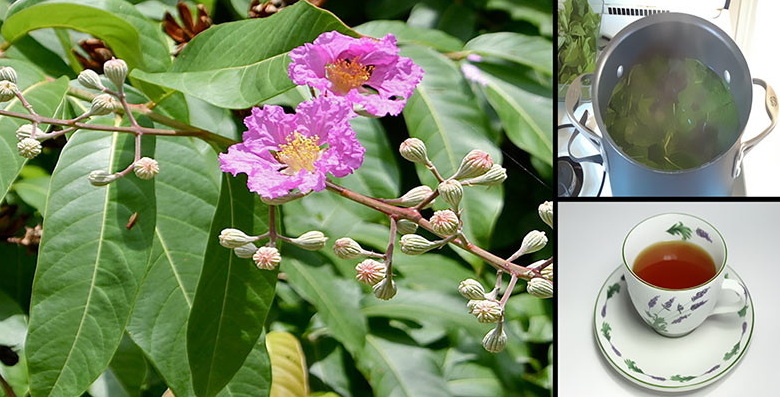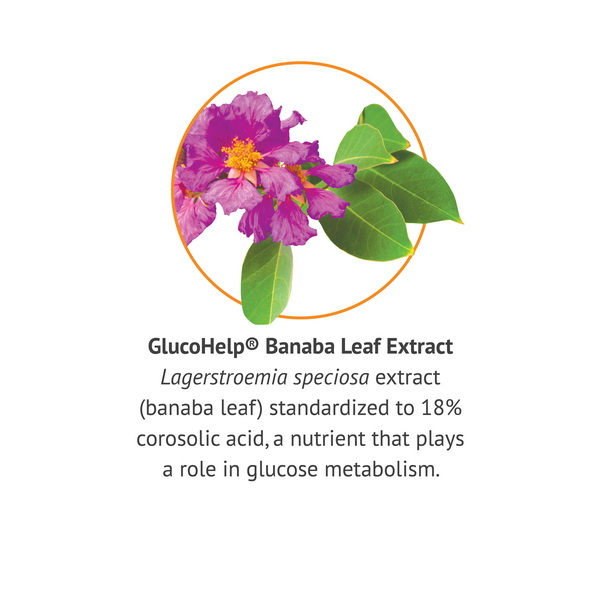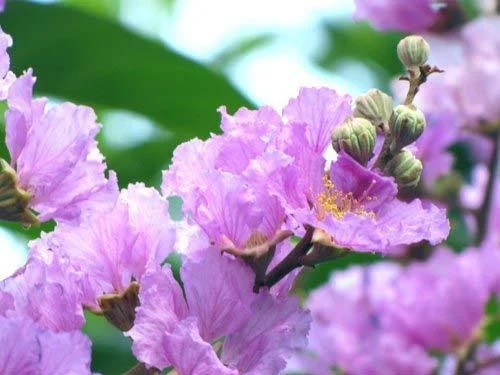Content Menu
● Introduction to Banaba Leaf Extract
>> Bioactive Compounds in Banaba Leaves
● Mechanisms of Action
● Clinical Studies on Banaba Leaf Extract
● Can Banaba Leaf Extract Cause Hypoglycemia?
>> Safety Considerations
● Potential Benefits Beyond Blood Sugar Control
>> Antioxidant Activity
>> Cardiovascular Health
● Cultural and Traditional Use
● Future Research Directions
● Conclusion
● FAQs
>> 1. What are the main bioactive compounds in banaba leaves?
>> 2. Can banaba leaf extract cause hypoglycemia?
>> 3. How does banaba leaf extract lower blood sugar levels?
>> 4. Is banaba leaf extract safe to use with other diabetes medications?
>> 5. What are the potential side effects of using banaba leaf extract?
● Citations:
Banaba leaf extract, derived from the plant Lagerstroemia speciosa, has been traditionally used in South Asian countries, particularly in the Philippines, for managing diabetes mellitus. It is rich in bioactive compounds such as corosolic acid, ellagitannins, and gallotannins, which are believed to contribute to its hypoglycemic effects. However, the question remains whether banaba leaf extract can lower blood sugar levels to the point of causing hypoglycemia.

Introduction to Banaba Leaf Extract
Banaba leaf extract has been studied extensively for its potential in lowering blood glucose levels. It is known for its insulin-like effects, enhancing glucose uptake in cells and inhibiting the digestion of carbohydrates by blocking enzymes like alpha-glucosidase. This makes it a popular herbal remedy for diabetes management.
Bioactive Compounds in Banaba Leaves
- Corosolic Acid: This compound is particularly noted for its ability to decrease blood sugar levels within 60 minutes in human subjects. It enhances cellular glucose uptake and inhibits the hydrolysis of sucrose and starches, contributing to its antidiabetic effects.
- Ellagitannins and Gallotannins: These compounds also play a role in the hypoglycemic activity of banaba leaves, though their mechanisms are less well-studied compared to corosolic acid.
Mechanisms of Action
Banaba leaf extract works through several mechanisms to lower blood sugar levels:
1. Enhanced Cellular Uptake of Glucose: By increasing insulin sensitivity, banaba leaf extract helps cells absorb glucose more efficiently, reducing blood glucose levels.
2. Impaired Hydrolysis of Sucrose and Starches: Corosolic acid inhibits the enzyme alpha-glucosidase, which breaks down carbohydrates into glucose. This slows down the digestion of carbs, preventing a rapid spike in blood sugar.
3. Decreased Gluconeogenesis: Banaba extract reduces the production of glucose in the liver, further contributing to lower blood glucose levels.
Clinical Studies on Banaba Leaf Extract
Several clinical studies have investigated the effects of banaba leaf extract on blood glucose levels:
- Human Studies: A one-year open-label study using a water-soluble banaba extract showed significant improvements in glucose tolerance and glycated albumin without causing hypoglycemia. Another study demonstrated that corosolic acid can decrease blood sugar levels within 60 minutes without adverse effects.
- Animal Studies: In diabetic mice and rats, banaba extracts have consistently shown the ability to lower blood glucose levels. For example, a study in genetically diabetic mice found that a diet supplemented with a water-soluble banaba extract significantly reduced blood glucose and insulin levels.
Can Banaba Leaf Extract Cause Hypoglycemia?
Despite its potent hypoglycemic effects, banaba leaf extract has not been reported to cause hypoglycemia in clinical studies. The decrease in blood glucose levels is typically within a safe range, usually around 10-15%. However, it is crucial to monitor blood sugar levels when using banaba leaf extract, especially if it is combined with other diabetes medications, as it may enhance their effects and potentially lead to hypoglycemia.
Safety Considerations
- Combination with Other Medications: Banaba leaf extract may have additive effects when taken with other antidiabetic drugs like metformin, which could increase the risk of hypoglycemia.
- Allergies: Individuals allergic to plants in the Lythraceae family should use banaba-based products cautiously.

Potential Benefits Beyond Blood Sugar Control
Banaba leaf extract may offer additional health benefits beyond its antidiabetic properties:
- Antioxidant Activity: Banaba leaves contain antioxidants that can help protect against oxidative stress, which is often associated with diabetes complications.
- Cardiovascular Health: Some studies suggest that banaba extract may help improve lipid profiles and reduce blood pressure, contributing to cardiovascular health.
Antioxidant Activity
Banaba leaves are rich in antioxidants such as ellagic acid and gallic acid, which can neutralize free radicals and reduce oxidative stress. This antioxidant activity may help mitigate some of the complications associated with diabetes, such as nephropathy and neuropathy.
Cardiovascular Health
Banaba extract has been shown to improve lipid metabolism by reducing triglycerides and LDL cholesterol while increasing HDL cholesterol. Additionally, its ability to lower blood pressure may contribute to overall cardiovascular well-being.
Cultural and Traditional Use
Banaba has been used for centuries in traditional medicine in Southeast Asia. In the Philippines, it is commonly consumed as a tea or added to soups for its health benefits. The cultural significance of banaba highlights its long-standing reputation as a safe and effective herbal remedy.
Future Research Directions
While existing studies are promising, further research is needed to fully understand the long-term effects of banaba leaf extract on diabetes management. Future studies should focus on:
- Long-term Safety and Efficacy: More extensive clinical trials are necessary to confirm the safety and efficacy of banaba leaf extract over extended periods.
- Mechanistic Studies: Further investigation into the molecular mechanisms behind banaba's hypoglycemic effects could lead to the development of more targeted therapies.
Conclusion
Banaba leaf extract is a promising herbal remedy for managing diabetes due to its ability to lower blood glucose levels safely without causing hypoglycemia. Its bioactive compounds, particularly corosolic acid, contribute to enhanced glucose uptake and reduced gluconeogenesis. While it is generally safe, caution is advised when combining it with other diabetes treatments.

FAQs
1. What are the main bioactive compounds in banaba leaves?
Banaba leaves contain corosolic acid, ellagitannins, and gallotannins, which are responsible for their hypoglycemic effects.
2. Can banaba leaf extract cause hypoglycemia?
Banaba leaf extract has not been reported to cause hypoglycemia in clinical studies, but it may enhance the effects of other diabetes medications, potentially increasing the risk of hypoglycemia.
3. How does banaba leaf extract lower blood sugar levels?
Banaba leaf extract enhances cellular glucose uptake, inhibits the hydrolysis of sucrose and starches, and decreases gluconeogenesis, contributing to its blood sugar-lowering effects.
4. Is banaba leaf extract safe to use with other diabetes medications?
While generally safe, banaba leaf extract may have additive effects with other diabetes medications, so monitoring blood sugar levels is recommended.
5. What are the potential side effects of using banaba leaf extract?
Banaba leaf extract is generally considered safe, but individuals with allergies to related plants should use it cautiously.
Citations:
[1] https://pmc.ncbi.nlm.nih.gov/articles/PMC3468018/
[2] https://citeseerx.ist.psu.edu/document?repid=rep1&type=pdf&doi=6d9608112538499efdfda645b6b0859e510f23a5
[3] https://patents.google.com/patent/JPH05310587A/en
[4] https://www.healthline.com/nutrition/banaba-leaf
[5] https://www.ingentaconnect.com/content/10.5958/j.2319-5886.2.2.033
[6] https://pmc.ncbi.nlm.nih.gov/articles/PMC11125167/
[7] https://pubmed.ncbi.nlm.nih.gov/9063966/
[8] https://pmc.ncbi.nlm.nih.gov/articles/PMC9028977/






























